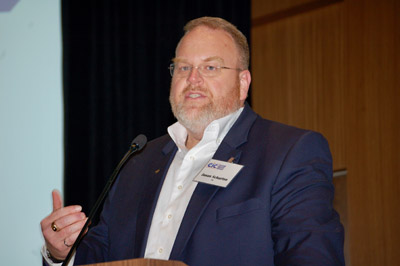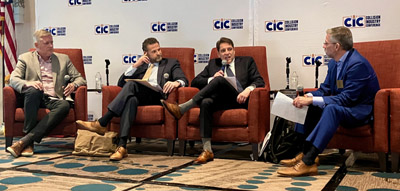A pair of attorneys speaking at the most recent Collision Industry Conference (CIC) earlier this year cautioned that collision repairers need to take the issue of release or misuse of customer personal identifiable information (PII)---such as that included on estimates---seriously.
“The unauthorized disclosure of a customer’s PII, whether intentional or not---intent doesn’t factor into the analysis here---creates a significant liability risk for repair shops,” said Pennsylvania attorney Larry Pockers.
He noted five states---California, Colorado, Connecticut, Utah and Vermont---have specific consumer data privacy laws in place, and others are expected to be added to that list this year.
Connecticut attorney Steven Bloch concurred.
“Once that information has been breached or disclosed improperly, without customer disclosure and authorization and consent, there is liability and exposure for the shops. It’s as simple as that,” Bloch said.
If that information gets used down the supply chain after being disclosed by a shop, “You’re going to be held responsible in many circumstances for that use, whether you agreed to it or not,” he said. “Simply because you did not intentionally disclose customer PII, or you don’t have a full understanding of what your license agreements provide as far as that data use is concerned, or what your partners are using that data for down the chain, and how they are transacting it, doesn’t absolve you of the liability that you can face here.”
What can shops do to limit their liability in terms of customer data privacy issues? Bloch suggested shops work with legal counsel to review current contracts and licensing agreements “to determine what it is you’ve provided in terms of permission to industry partners and vendors.”
Shops should consider whether those documents address how any partner with which they are sharing information may be using that information.
“What have you opened yourself up to as far as the use of that customer information down the chain,” Bloch said.

Put together a list of standard operating procedures and best practices that comply with state law, he suggested.
“Prepare standard customer disclosures and notifications, and most importantly, obtain customer consent so they understand and have given you permission to use that data at least for the purposes for which it was intended, so you can perform your repair services,” Bloch said.
Pockers agreed looking at a shop’s existing agreements is important.
“You could try to renegotiate these agreements, but let’s be realistic. That’s not going to happen,” he said. “So the mitigation strategy is: What about future agreements with others in the supply chain that you’re going to enter into?”
Both attorneys said such reviews and customer notification and authorization forms are among the services their firms offer. They said there may be some technology solutions that can help shops control access to their data.
“But given the landscape in which everybody is operating, and how the sharing and flow of information is being transacted, I don’t know you can necessarily do one thing and achieve complete peace in terms of thinking you’ve protected your customers’ data in a foolproof [way] and you have nothing to worry about going forward,” Bloch said. “That’s why the customer disclosure and consent are first and foremost to think about, and should be your first line of defense in terms of protecting that information.”
An Industry Spokesperson?
Other speakers at CIC addressed a variety of subjects, including the technician shortage. Industry consultant Petra Schroeder, vice chair of the CIC Talent Pool and Education Committee, suggested that while many organizations within the industry are working on various efforts to attract, train and retain new technicians, she believes it’s time to “combine forces and collaborate.”
Part of the challenge, she said, is that outside the industry, the general public has little awareness of how vehicle technology and other changes over the past decade have impacted the work and career opportunities within the industry.
She offered a two-part idea. First, she suggested the industry craft and adopt a common position statement relative to working together to “draw awareness and appeal of the exciting and rewarding career opportunities within our industry.”
Second, she asked rhetorically whether industry organizations could work together to jointly finance a spokesperson who could help bring the industry’s message to a wide audience. She said two possible spokespersons she could think of were Mike Rowe, who currently promotes other skilled trades including diesel repair, or Jay Leno, who has some connection with the industry given his “Jay Leno’s Garage” television series.
Repair Planning Considerations Regarding Materials, EVs
Also at CIC, the Parts and Materials Committee discussed the role of materials in repair decisions.










John Yoswick